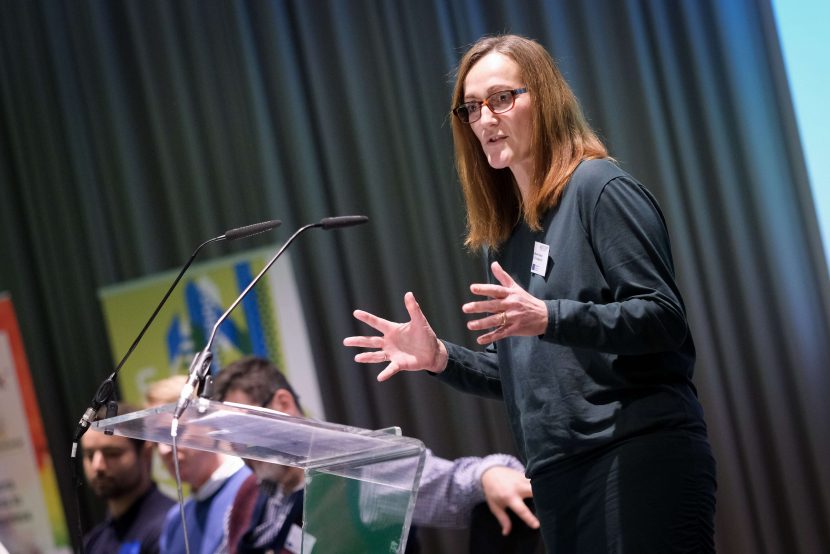A legacy project born out of the Great Exhibition of the North (GEOTN) has directly supported 78, and engaged with over 150, North East SMEs and brokered valuable relationships and collaborations with other businesses and research institutions throughout the region.
The two-year GX Project was developed to draw on and build a legacy from the networks and innovations created and explored during GEOTN. Part-funded by the European Regional Development Fund (ERDF), the project was led by NewcastleGateshead Initiative, working in partnership with Innovation Super Network and Newcastle City Council. It has facilitated joint-working for North East SMEs and scale-ups to realise and harness their innovation potential and capacity.
Over £160,000 of grants were also awarded to a total of 27 NELEP based SMEs, which in turn leveraged a commitment for a further £175,000 of private sector investment through match funding. Grants have been used to help companies realise their potential, supporting the progression of new products and services.
The success of the GX Project was celebrated during an event last week at the Crowne Plaza in Newcastle. Over 140 representatives from the North East business community were in attendance as companies involved in the project shared their stories through innovation lightning talks, Q&As and presentations. These included digital design agency MAADIGITAL, Siemens, cot designer So To and drone software company DroneOps.
Carol Bell, Director of Major Events and Festivals at NewcastleGateshead Initiative, said: “Gathering everyone together was a great opportunity to celebrate some of the successes of the GX Project. The project has facilitated impressive collaboration between SMEs, private sector businesses and research institutions, and those involved will continue to see benefits moving forward. Innovation is key to the success of any business but it can sometimes be difficult to balance current operations with future innovation.”
The 24-month project is due to finish in December, although there is a possibility that it could be extended if additional funding is secured.
Carol added: “The GX Project has provided us with brilliant examples of collaboration within the region and we are hopeful that we can secure additional funding from the ERDF for another year.”
Case studies
Newcastle-based MAADIGITAL specialises in the creation of and definition of mobile apps, augmented reality, 3d animation and video production. The company have had extensive involvement with the GX Project, participating in two innovation challenges and being part of a GX Collaborate Project with Teesside University. MAADIGITAL was also successful in securing work with Siemens Energy through the GX funded Siemens Innovation Challenge in June this year.
MAADIGITAL Managing Director Colin Kelly commented: “We’ve secured work through this process and we’ve built an excellent working relationship with Siemens which may result in further work. GX has helped our company to move into a new sector, add a prestigious client and expand our portfolio, presenting a number of opportunities for future growth and development.”
Another exhibitor on the day was So To Company Ltd – developer of a new and innovative product, Karekot, which aims to provide a safer, soft-sided cot bed. Founder and Director Katharine Paterson was inspired to develop Karekot following the experiences of her young daughter with a traditional wooden-barred cot. So To secured a GX Grant which supported the final stages and refinement of product design and the development of a new high-quality product prototype.
Katharine said: “Despite retailer interest, it has been difficult to secure funding to move the product from an idea and an initial rudimentary prototype. The GX Grant has helped us to redesign Karekot in light of market research and select the appropriate textiles and materials for the product to ensure it is fit for market.
“GX has helped me to make significant steps forward which will hopefully enable Karekot to get to market sooner, enabling babies to sleep more safely and soundly, which is what the product is all about.”
GX Collaborate funding enabled Gateshead-based DroneOps to work with Northumbria University on R&D relating to the use of drones as a flying platform carrying ground penetrating radars. The technology has the potential to dramatically improve the efficiency and safety of landmine detection processes in a number of ways. DroneOps was already involved with the Army Warfighting Experiment and GX Collaborate helped to de-risk the proposition for potential future investors.
Dominic Kelly, Director at DroneOps, said: “GX Collaborate has acted as a springboard for us to tap into university expertise, it gave us proof of concept and we now have robust evidence to enable us to demonstrate the technology, how it saves time, reduces cost and removes the need for personnel to analyse the images produced.”
For more information about the GX Project and see the full insight report visit http://getnorth2018.com/wp-content/uploads/2019/11/GX_Project_Report_FinalProof.pdf

